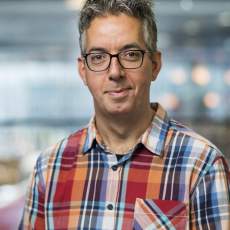Background Information
The Master's program in Sustainable Energy Technology (SET) at TU/e is a pioneering interdisciplinary program aimed at educating T-shaped engineers for the energy transition. Despite being well-aligned with the university’s educational vision, interdisciplinary, challenge-driven, and future-oriented, the program struggles to effectively communicate its unique identity to students, teachers, and the broader academic community. Recent accreditation feedback emphasized the need to reinforce the program’s multidisciplinary and integrative character, particularly in the second year.
Students enrolled in the program often experience difficulties defining their professional identity. They may feel more connected to their disciplinary research groups than to the SET program as a whole. Additionally, the relatively small size of the program (40–50 students annually) and limited visibility of alumni pathways contribute to uncertainty about students’ roles in the job market. While TU/e offers general initiatives like career days, these are not tailored enough to meet SET students’ specific needs.
This project proposes targeted interventions to empower students to better understand and shape their professional identities. It also supports instructors and staff in conveying the program's unique value, fostering a stronger sense of community and alignment with the university’s broader educational goals.
Aim of the project
The goal of this project is to strengthen the professional identity of SET students and enhance the visibility and coherence of the program’s interdisciplinary profile. This is achieved by analyzing data on student choices (electives, research projects) and alumni career paths, and by embedding two structured activities into the SET curriculum. These activities will support students in recognizing their individual and shared identities, understanding their unique value in the energy sector, and making more confident decisions about their study paths and professional futures.
For educators and program staff, the project promotes greater awareness of the SET identity and its integration into teaching and supervision, particularly in the second year of the program. Workshops and interviews will engage core teachers and draw insights from other interdisciplinary programs. The findings will be shared with the education committee and used to refine curriculum design.
Ultimately, the project aims to create a sustainable model for embedding professional identity development within SET. It contributes directly to TU/e’s vision of student
empowerment, interdisciplinary education, and societal relevance, and may offer valuable insights for other programs facing similar challenges.

